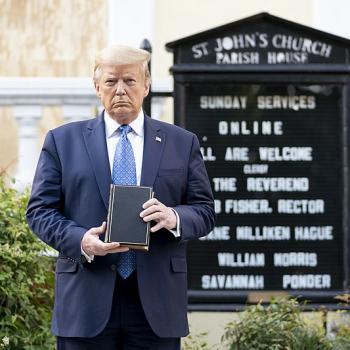It’s been cooking for months.
The question now is whether it will get out of the box.
“It” is the long-smoldering Ebola outbreak in West Africa. The box, of course, is West Africa itself.
Will a disease vector — meaning, an infected person — manage to infect someone else who is going to, say, Sudan, who infects someone else who is going to Egypt, who manages to get on a plane and end up in Instanbul?
There are many routes this disease could take out of that box. In this age of air travel and high mobility, disease can spread at the speed of a jet engine. But that is the worst one I can imagine. If, through one of the many routes available to it, this thing ends up unnoticed in Istanbul, the potential for it to go on to the airport in Frankfurt, and from there to the whole wide world is enormous. Istanbul is the roadway between Africa and Europe. Always has been.
That’s the nightmare scenario. It’s the one that tantalizes us like a real-life disaster movie as we watch this unfold. I’ve been reading about this killer disease as it has slowly built itself into an out-of-control epidemic for a long time now. The death toll kept rising, the affected area kept spreading. But it was slow. It sludged from one godforsaken arm pit of a country to another and nobody much cared.
The world has become inured to horror stories from Africa. We don’t know what to do about these things, and it beats us up to watch them. So we watch, feel bad for a moment, and then go on. What else can we do?

But the trouble with these human horror stories is that, if they are allowed to fester, they reach a critical mass and begin to spread. It doesn’t matter much if the illness is terrorist serial killers posing as religios, or an actual virus that we can only see with an electron microscope, the death and sickness will fester and smolder like a fire in the attic until it bursts out and takes somebody’s house down in a conflagration.
Ebola is out of control in West Africa. I read today that Sierra Leone is using troops to quarantine the sick. Medical teams from all over the world, but most especially the United States, are out there fighting the fight in their hazmat soldier suits. At the same time, frightened villagers have been known to turn on the docs and even burn down aid stations.
I’m guessing that these villagers have their reasons for feeling this way. But I don’t know enough to speculate what those reasons might be.
All I know for sure is that there’s a fight going on to stop a virus before it gets out of the box and begins a run down pandemic highway, killing a huge percentage of humanity as it goes.
I honestly think that the boys and girls in the hazmat suits will shut this thing down. It’s almost never the thing we see coming that gets us. It’s the blind-side that takes us down.
But the lessons in this horror story are obvious. You can’t consign any part of humanity to the waste bin and get away with it. Not forever. Like it or not, these people in West Africa are part of the human family. That’s why their long-smoldering virus scares us. Because what kills them will also kill us, and — here’s the big one — what kills them will spread to us just as if we were the same as them.
Which, of course, is the point. We are the same as them. Same DNA. Same human body. Same human immune system. We are them. They are us. These aren’t a bunch of infected bats or monkeys. These are human beings. Just like us.
And what kills them, can and will kill us.
There’s a moral here, and it’s not hard to find. It doesn’t matter whether it’s the blight of inner city neighborhoods, drug cartels in Central America or a killer virus in Africa, what happens to other people will come around and happen to us if we ignore it.
Take, for instance, the blight in inner city neighborhoods. Much — not all, but much — of that soul-killing blight is linked to the use of addictive and illegal drugs. These drugs come from South of the Border. The drug cartels south of the border, who are financed by our drug use north of the border, kill and terrify whole populations, who in turn head up north to get away from the violence and hopelessness. We, in turn, stand at the border with signs, yelling at them and telling them to go back where they came from.
We’re all connected. What happens to them, will bite us too.
A virus in the poorest and most hopeless countries on the poorest and most hopeless continent in the world is cooking up a storm that will kill a lot of us if we don’t shut it down. The immediacy and the terror of this virus has our attention and we’re doing what has to be done to get it stopped. We are racing against time. Hurrying to get this thing pinned to the ground before that one infected person takes a pickup ride into the Sudan and meets someone else who goes to Egypt, who talks to someone who decides to take a short flight to Istanbul.
Because if that happens, we’re staring down the gun barrel of a conflagration.
We. Are. One. Highly-Dysfunctional. Family.
That is not poetry. It is absolute biological fact.














